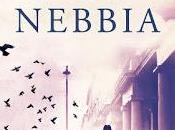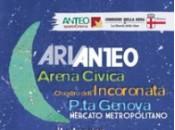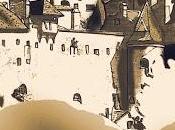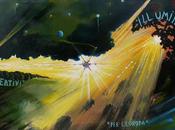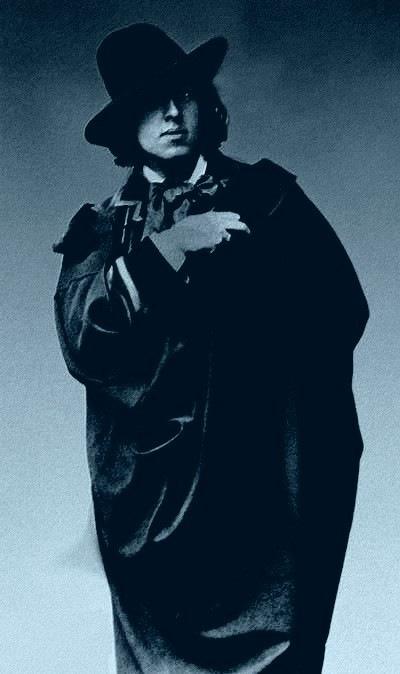
Oscar Wilde
La Sainte Courtisane
o
La donna ricoperta di gioielli
Titolo originale: La Sainte Courtisane
or, the woman covered with jewels
Traduzione dall’originale in inglese di Marco Vignolo Gargini
lllllllllllllllllllllllllllllllllll
MYRRHINA. Quali dèi allora voi venerate? O meglio, voi adorate degli dèi? Vi sono quelli che non hanno dei da adorare. I filosofi che portano lunghe barbe e pallii bruni non hanno dèi da venerare. Essi discutono fra di loro nei portici. I [… ] ridono di loro.
PRIMO UOMO. Noi veneriamo sette dèi. Non ci è concesso di dire i loro nomi. Si corre serio pericolo a dire i nomi degli dèi. Nessuno dovrebbe rivelare il nome del suo dio. Perfino i sacerdoti che pregano gli dèi tutto il giorno, e con loro si cibano nella loro mensa, non li chiamano con i loro veri nomi.
MYRRHINA. Dove si trovano questi dèi che voi adorate?
PRIMO UOMO. Noi li celiamo nelle pieghe delle nostre tuniche. Noi non li mostriamo a nessuno. Se li mostrassimo a qualcuno gli dèi potrebbero lasciarci.
MYRRHINA. Dove vi siete imbattuti in loro?
PRIMO UOMO. Essi ci sono stati donati da un imbalsamatore di morti che li aveva rinvenuti in un sepolcro. Siamo stati suoi servi per sette anni.
MYRRHINA. I morti sono terribili. Io ho paura della Morte.
PRIMO UOMO. La Morte non è una divinità. È soltanto la servente degli dèi.
MYRRHINA. È l’unico dio che m’incute timore. Voi avete veduto molti dèi?
PRIMO UOMO. Noi ne abbiamo veduti molti di loro. Li si scorge principalmente la notte. Ti passano vicino con grande sveltezza. Una volta noi vedemmo alcuni dèi alle luci dell’alba. Stavano attraversando una pianura.
MYRRHINA. Una volta in cui mi trovavo a passare per la piazza di un mercato io udii un sofista della Cilicia affermare che c’è un solo Dio. Lo disse davanti a molte persone.
PRIMO UOMO. Non può essere vero. Noi stessi in persona ne abbiamo veduti molti, pur essendo uomini comuni e senza valore. Quando io li vidi mi nascosi dietro un cespuglio. Essi non mi fecero alcun male.
* * * * *
MYRRHINA. Ditemi di più a proposito del bel giovane eremita. Ditemi del bel giovane eremita che non vuole fissare il suo sguardo sul viso di donna. Qual è la storia dei suoi giorni? E in che modo egli vive?
PRIMO UOMO. Noi non ti capiamo.
MYRRHINA. Che cosa fa, il bel giovane eremita? Semina o fa il raccolto? Coltiva un giardino o prende pesci con una rete? Tesse tele di lino su di in un telaio? Pone la sua mano sul ligneo aratro e cammina dietro ai buoi?
SECONDO UOMO. Egli che è un uomo veramente santo non fa niente. Noi siamo uomini comuni e senza valore. Ci ammazziamo di fatica per tutto il giorno sotto il sole. Talvolta il terreno è molto duro.
MYRRHINA. Lo nutrono gli uccelli dell’aria? Gli sciacalli spartiscono il loro bottino con lui?
PRIMO UOMO. Ogni sera noi gli portiamo da mangiare. Non pensiamo che siano gli uccelli dell’aria a nutrirlo.
MYRRHINA. Perché gli portate del cibo? Che vantaggio avete a fare così?
SECONDO UOMO. Egli è un uomo veramente santo. Uno degli dèi che lui ha insultato lo ha fatto impazzire. Noi crediamo che abbia offeso la luna.
MYRRHINA. Andate e dite lui che una che è giunta da Alessandria desidera parlargli.
PRIMO UOMO. Noi non osiamo dirglielo. Adesso lui sta pregando il suo Dio. Noi ti chiediamo di perdonarci se non eseguiamo il tuo ordine.
MYRRHINA. Avete paura di lui?
PRIMO UOMO. Noi abbiamo paura di lui.
MYRRHINA. Perché?
PRIMO UOMO. Noi non lo sappiamo.
MYRRHINA. Qual è il suo nome?
PRIMO UOMO. La voce che di notte parla a lui nella caverna lo chiama con il nome di Onorio. E fu anche con il nome di Onorio che tre lebbrosi che passarono qui lo chiamarono una volta. Noi pensiamo che il suo nome sia Onorio.
MYRRHINA. Perché i tre lebbrosi lo hanno chiamato?
PRIMO UOMO. Perché lui li guarisse.
MYRRHINA. Li guarì?
SECONDO UOMO. No. Loro avevano commesso qualche peccato: fu per questa ragione che erano lebbrosi. Le loro mani e i loro volti sembravano di sale. Uno di essi indossava una maschera di lino. Era figlio di un re.
MYRRHINA. Che voce è quella che gli parla di notte nella sua caverna?
PRIMO UOMO. Noi non sappiamo a chi appartenga quella voce. Pensiamo sia la voce di Dio. Dato che non abbiamo visto nessun uomo né entrare nella sua caverna né uscirne fuori.
• • • • • • • •
lllllllllllllllllllllllllllllllllll
MYRRHINA: What gods do ye worship? Or do ye worship any gods? There are those who have no gods to worship. The philosophers who wear long beards and brown cloaks have no gods to worship. They wrangle with each other in the porticoes. The ( ) laugh at them.
FIRST MAN: We worship seven gods. We may not tell their names. It is a very dangerous thing to tell the names of the gods. No one should ever tell the name of his god. Even the priests who praise the gods all day long, and eat of their food with them, do not call them by their right names.
MYRRHINA: Where are these gods ye worship?
FIRST MAN: We hide them in the folds of our tunics. We do not show them to any one. If we showed them to any one they might leave us.
MYRRHINA: Where did ye meet with them?
FIRST MAN: They were given to us by an embalmer of the dead who had found them in a tomb. We served him for seven years.
MYRRHINA: The dead are terrible. I am afraid of Death.
FIRST MAN: Death is not a god. He is only the servant of the gods.
MYRRHINA: He is the only god I am afraid of. Ye have seen many of the gods?
FIRST MAN: We have seen many of them. One sees them chiefly at night time. They pass one by very swiftly. Once we saw some of the gods at daybreak. They were talking across a plain.
MYRRHINA: Once as I was passing through the market place I heard a sophist from Gilicia say that there is only one God. He said it before many people.
FIRST MAN: That cannot be true. We have ourselves seen many, though we are but common men and of no account. When I saw them I hid myself in a bush. They did me no harm.
• • • • • • • •
MYRRHINA: Tell me more about the beautiful young hermit. Talk to me about the beautiful young hermit who will not look on the face of woman. What is the story of his days? What mode of life has he?
FIRST MAN: We do not understand you.
MYRRHINA: What does he do, the beautiful young hermit? Does he sow or reap? Does he plant a garden or catch fish in a net? Does he weave linen on a loom? Does he set his hand to the wooden plough and walk behind the oxen?
SECOND MAN: He being a very holy man does nothing. We are common men and of no account. We toil all day long in the sun. Sometimes the ground is very hard.
MYRRHINA: Do the birds of the air feed him? Do the jackals share their booty with him?
FIRST MAN: Every evening we bring him food. We do not think that the birds of the air feed him.
MYRRHINA: Why do ye feed him? What profit have ye in so doing?
SECOND MAN: He is a very holy man. One of the gods whom he had offended had made him mad. We think he had offended the moon.
MYRRHINA: Go and tell him that one who has come from Alexandria desires to speak with him.
FIRST MAN: We dare not tell him. This hour he is praying to his God. We pray thee to pardon us for not doing thy bidding.
MYRRHINA: Are ye afraid of him?
FIRST MAN: We are afraid of him.
MYRRHINA: Why are ye afraid of him?
FIRST MAN: We do not know.
MYRRHINA: What is his name?
FIRST MAN: The voice that speaks to him at night time in the cavern calls to him by the name of Honorius. It was also by the name of Honorius that the three lepers who passed by once called to him. We think that his name is Honorius.
MYRRHINA: Why did the three lepers call to him?
FIRST MAN: That he might heal them.
MYRRHINA: Did he heal them?
SECOND MAN: No. They had committed some sin: it was for that reason they were lepers. Their hands and faces were like salt. One of them wore a mask of linen. He was a king’s son.
MYRRHINA: What is the voice that speaks to him at night time in his cave?
FIRST MAN: We do not know whose voice it is. We think it is the voice of his God. For we have seen no man enter his cavern nor any come forth from it.
• • • • • • • •
